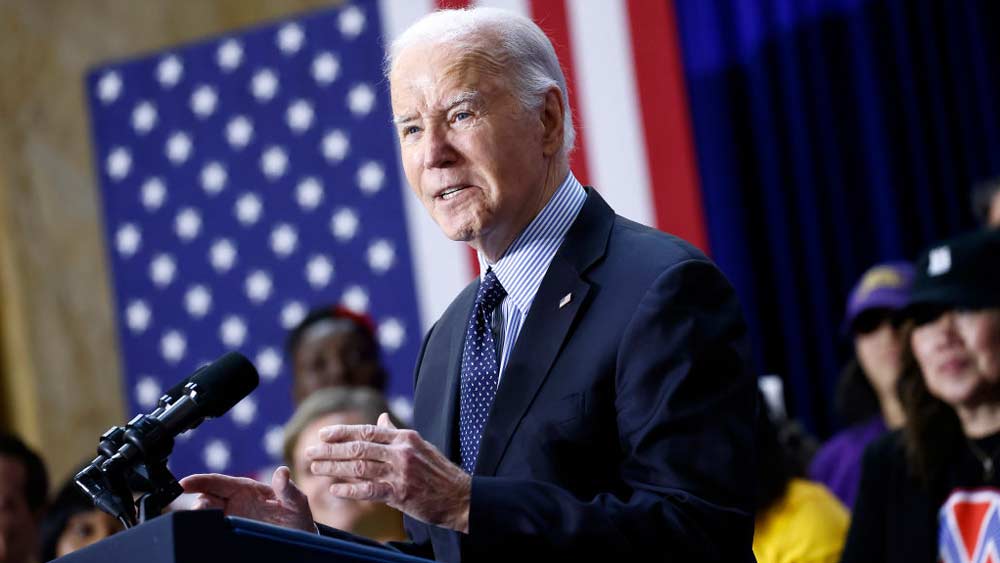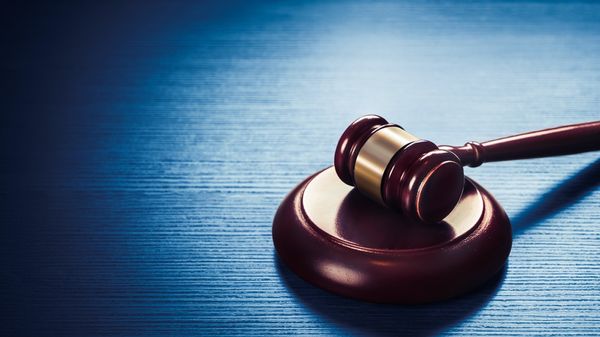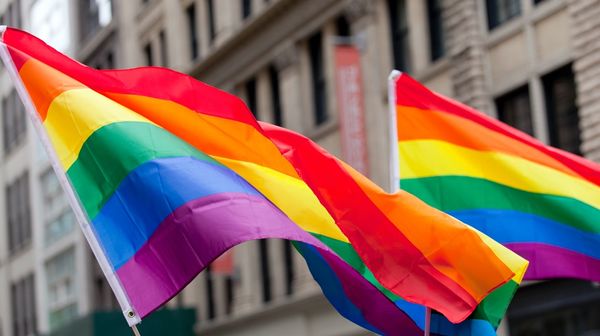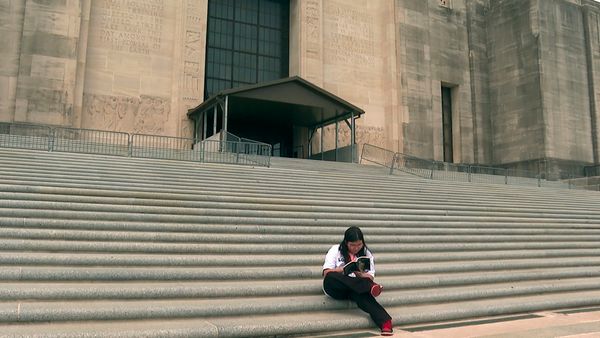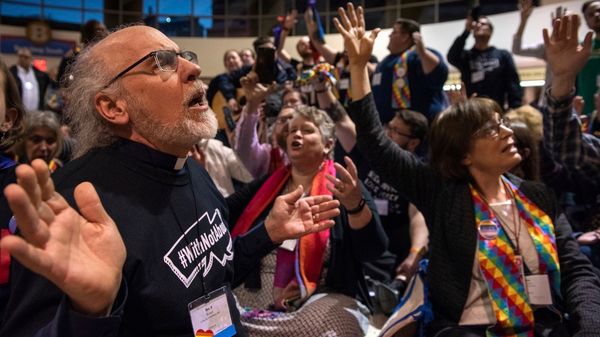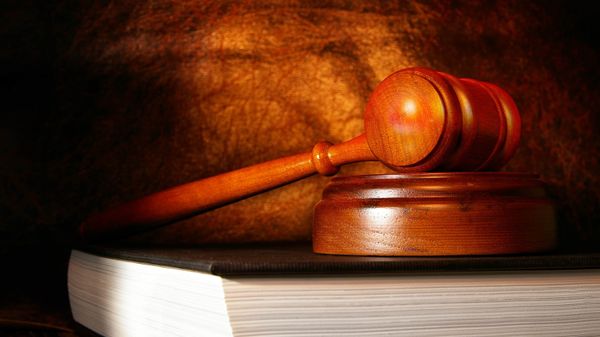September 27, 2011
Study: People More Comfortable With Out Co-Workers Than Closeted Ones
Peter Cassels READ TIME: 5 MIN.
New research supports the notion that people who don't hide their sexual orientation are not only more pleasant to be around, but also perform more effectively in the workplace by improving teamwork.
University of California-Los Angeles' Anderson School of Management released a study conducted among undergraduates to coincide with the end of Don't Ask, Don't Tell on Sept. 20. But the research has ramifications well beyond gays and lesbians serving openly in the military.
Activists say the research will serve as ammunition in aiding passage of the Employment Non-Discrimination Act, which has languished in Congress since its initial introduction in 1994. The study helps put to rest a major argument against repeal of Don't Ask, Don't Tell -- that it would harm unit cohesion in the military.
That's because policies that introduce uncertainty into social interactions, such as the ban on gay service members serving openly, may negatively affect rather than protect team performance. Those in the military could perform better if they don't need to wonder about their teammates' sexual orientation, according to the UCLA researchers.
During the six-month study, the first of its kind, a research team tested a group of 50 undergraduate men. Each was paired with a gay man who either disclosed or concealed his orientation.
Separate studies measured cognitive and sensory-motor skills in performing math problems and in playing a Nintendo Wii shooting game.
Results: 1/3 Better With Openly Gay Co-Worker
The results showed that the participants paired with openly gay partners performed on average 32 percent better in solving math problems and 20 percent better on the Nintendo game compared to participants paired with closeted gay partners.
Previous research showed that ambiguity in interactions may hurt performance, since people need to be able to predict behaviors and attitudes with team partners to facilitate social interaction, according to UCLA.
The researchers reported that disclosure of sexual orientation by a gay partner reduces ambiguity and makes the interaction less psychologically demanding.
Release of the research coincided with the report of an anonymous online survey conducted by OutServe, the association of LGBT military members. Most (67 percent) of the more than 500 active-duty respondents anticipated no problems with the end of the ban on serving openly.
"Lots of people at work know a friend of mine is gay and there have been no negative reactions toward him," one reported. "As for another friend in a combat unit, the whole unit knew he was gay and no one cared."
The UCLA study broke new ground, according to those who conducted it: Margaret Shih, associate professor of human resources and organizational behavior, and doctoral candidates Benjamin Everly and Geoffrey Ho.
While adding to research on personal interaction was the academic reason for the study, "the more practical motivation had to do with the Don't Ask, Don't Tell policy," Everly said in an interview.
"There actually hasn't been any experimental work to show performance is affected when someone with whom you are working discloses their sexual orientation," he added.
"The results of our studies are relevant for any organization in which individuals may not feel comfortable disclosing their sexual orientation because our results suggest that it is better if members disclose their sexual orientation," according to Everly. "The performance of their colleagues also might improve."
He's working on follow-up studies that "will attempt to figure out why the effect that we found exists."
Everly mentioned that the study also supports passage of the national Employment Non-Discrimination Act because improved performance would encourage employers to come out of the closet by instituting LGBT-friendly policies.
ENDA has disappeared from the radar recently as activists, fresh from the victory over Don't Ask, Don't Tell, focus on repeal of the Defense of Marriage Act, which would be a landmark achievement in the fight for universal marriage equality.
In the nearly two decades since it was first introduced by Massachusetts Democrats Sen. Ted Kennedy and Rep. Gerry Studds, the first openly gay member of Congress, the legislation has never made it out of committee.
ENDA has had such a low profile that when EDGE interviewed future GOP presidential nominee Sen. John McCain in 2006, he said he was not familiar with it. (He also reiterated his opposition to repeal of ending the ban on gays serving openly in the military, a position he maintained until its repeal by Congress last year.)
Chances that the legislation will be considered in the near future are nil because of the Republican-controlled House of Representatives. That doesn't mean activists have given up. Spokespersons for the most prominent national LGBT rights organizations told EDGE they continue to raise the subject with members of Congress and their staffs.
They also say that the UCLA study will provide ammunition.
"It's definitely encouraging to know that prejudices and stereotypes are breaking down," Michael Cole-Schwartz, Human Rights Campaign communications director, said.
"We've seen that in so many areas of society. This study seems to show that the same is true at work. There should be no reason why your sexual orientation should affect how you do your job but discrimination protections that should be are not in place. The study shows how you perform as a worker is more important than your sexual orientation or identity."
Gender Identity Slows Bill
Earlier versions of the ENDA bill did not include gender identity, but after much discussion among sponsors and LGBT activists, that was corrected in the last couple of years.
"Unfortunately, we're not likely to see advancement on ENDA in this Congress given the House leadership," Cole-Schwartz acknowledged. "But that doesn't mean that work isn't continuing on educating members. We are talking constantly with them so when we do have a leadership that is interested in moving forward we hopefully will have garnered more support in Congress more broadly."
The UCLA study is "significant research and can inform Congress that doing the right thing is also a good thing because it will increase productivity," Laurie Young, the National Gay and Lesbian Task Force's director of public policy and government affairs, pointed out. The project "shows people perform better when they can be who they are, not only themselves but the people they work with," she added.
The ramifications of not having ENDA are seriously affecting LGBTs, ranging from living with a hostile work environment to actually losing their jobs, Young stressed.
Other activists haven't given up the fight, either. Pride at Work, affiliated with the AFL-CIO, is using its considerable union power to work for what it hopes is ENDA's eventual passage. Peggy Shorey, its executive director, was traveling and could not be interviewed for this report.
Peter Cassels is a recipient of the National Lesbian and Gay Journalists Association's Excellence in Journalism award. His e-mail address is [email protected].

